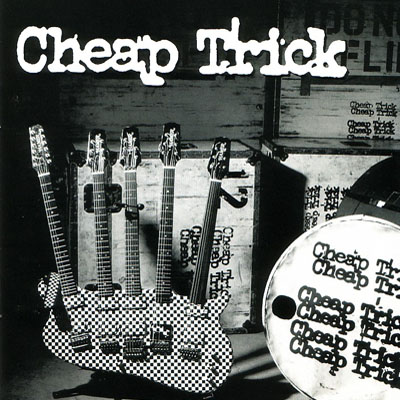
Cheap Trick (1997)

1.Anytime
2.Hard To Tell
3.Carnival Game
4.Shelter
5.You Let A Lotta People Down
6.Baby No More
7.Yeah Yeah
8.Say Goodbye
9.Wrong All Along
10.Eight Miles Low
11.It All Comes Back To You
It is always tempting—often unfairly—to compare a band’s latter-day revival to their early heyday. In Cheap Trick’s case, such comparisons were nearly inescapable. By 1997, they had weathered the turbulence of shifting musical tides, record label politics, and a gradual decline into semi-obscurity. Gone was the sheen of major label backing; gone too was any real expectation that this Rockford, Illinois outfit would produce another great record. And yet, that’s precisely what they did.
The eponymous title—identical to their 1977 debut—was no accident. Nor was the minimalist black-and-white cover photo. These weren’t mere nods to nostalgia, but statements of renewal, reclamation, and perhaps even rebirth. In spirit and sound, the album feels less like a reunion with the past than a reassertion of identity: lean, loud, and joyfully unrepentant.
From the opening bars, it’s clear that Cheap Trick had rediscovered their essence. Crunchy guitars, driving rhythms, and compact, hook-laden songwriting once again formed the backbone of their sound. Tracks like Say Goodbye and Carnival Game exhibit the kind of sharpness and accessibility that once made them chart fixtures. But crucially, these aren’t attempts to chase trends. Instead, they reaffirm the band’s long-dormant capacity for marrying power-pop exuberance with rock 'n' roll muscle.
Elsewhere, a welcome maturity sneaks through. Shelter, written in the shadow of Nielsen’s father’s death, manages to be poignant without sinking into mawkishness. It All Comes Back to You has the feel of a late-night confessional, stripped of bravado and all the more affecting for it. That these softer tracks coexist so seamlessly with the more raucous material is testament to the band’s regained confidence. They had nothing left to prove—and so, paradoxically, proved everything.
No, there are no weak tracks here. No moments where the band seems to be coasting or padding out the runtime. It is, if anything, one of the most consistent records of their career—certainly their most honest in years. For anyone who had written them off as casualties of the arena rock era, this album must have come as a surprise. For longtime fans, it was nothing short of a triumph.
A return to form? Perhaps. But more importantly, it was a reminder: beneath the hair, hooks, and harmonies, Cheap Trick were always craftsmen—and in 1997, they remembered exactly how to build.
Go back to the main page
Go To Next Review